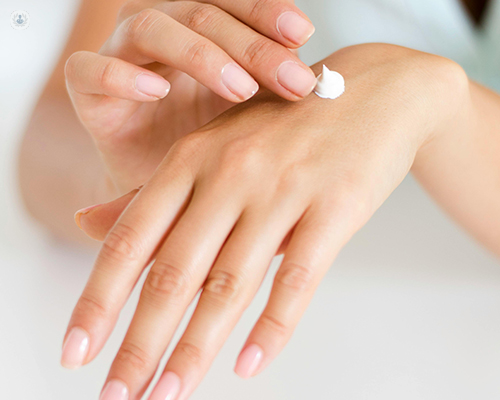Lighting the way to clear skin: The science behind phototherapy
Written by:Phototherapy, utilising light to treat skin conditions, is a trusted dermatological approach. Effective for eczema, psoriasis, and more, it reduces inflammation and relieves symptoms. Despite potential side effects like dryness and tanning, proper monitoring minimises risks. Results typically appear within six to eight weeks, accompanied by a natural tan—a sign of skin defence against UV radiation. In his latest online article, Dr Derrick Philips delves into phototherapy for clearer, healthier skin.

What is phototherapy?
Phototherapy involves using light emitted from fluorescent bulbs to treat skin conditions. Throughout history, sunlight has been recognised for its therapeutic effects on skin ailments due to its ultraviolet A and ultraviolet B waves.
There are three main types of phototherapies: narrow band UVB, which utilises a specific portion of the UVB spectrum and is commonly prescribed; broadband, encompassing the entire UVB spectrum, which has become less favoured in recent times; and psoralens plus UVA, a distinct approach combining UVA, the most penetrating ultraviolet light, with a compound called psoralens, enhancing skin sensitivity to UV radiation. This method can be administered orally or topically and is typically recommended for individuals who haven't responded to other phototherapy treatments.
What can it treat?
Phototherapy serves as a versatile treatment for various inflammatory skin conditions, including common ones like eczema and psoriasis, as well as less prevalent conditions such as pityriasis lichenoides et varioliformis acuta, chronic urticaria, and pigmentary disorders like vitiligo. Additionally, it can be paradoxically employed to address sun-induced rashes like polymorphic light eruption and has shown efficacy in treating certain types of skin lymphoma. Its wide-ranging applications make it an invaluable tool in the dermatologist's arsenal.
What are the benefits of phototherapy?
Phototherapy effectively diminishes skin inflammation, making it an essential in dermatological treatment. It particularly excels in managing psoriasis and certain types of eczema. Patients undergoing this treatment often experience not only a decrease in the severity and spread of their condition but also relief from symptoms such as itchiness or irritation, notably seen in conditions like vitiligo where skin pigmentation is lost. Prolonged phototherapy can even stimulate repigmentation in such cases. Moreover, for conditions like polymorphic light eruption, regular phototherapy sessions can prevent the occurrence of severe flares throughout the year.
What are the side effects of phototherapy?
Like many treatments, phototherapy comes with its share of potential side effects. In the short term, it may lead to skin dryness and itchiness, highlighting the importance of using a quality moisturiser throughout the treatment period. Additionally, phototherapy can induce tanning and, in rare cases, may cause redness or even burning. However, the occurrence of these latter side effects is mitigated by a pre-treatment safety test, which helps identify individuals more susceptible to UV radiation, resulting in adjustments to treatment dosage and regimen. In the long term, phototherapy is linked to skin ageing, and certain types have been associated with an increased risk of skin cancer.
How long does it take for phototherapy to work?
The effects of phototherapy may not become apparent for several weeks, though some individuals may experience benefits sooner than others. A complete course of phototherapy typically spans six to eight weeks.
Can phototherapy darken the skin?
It's common to develop a tan while undergoing treatment. This is the skin's natural response to ultraviolet light, serving as a protective mechanism against UV radiation-induced damage. Therefore, it's typical for most patients to observe a tan by the completion of their treatment.
Dr Derrick Philips is an esteemed dermatologist. You can schedule an appointment with Dr Philips on his Top Doctors profile.


